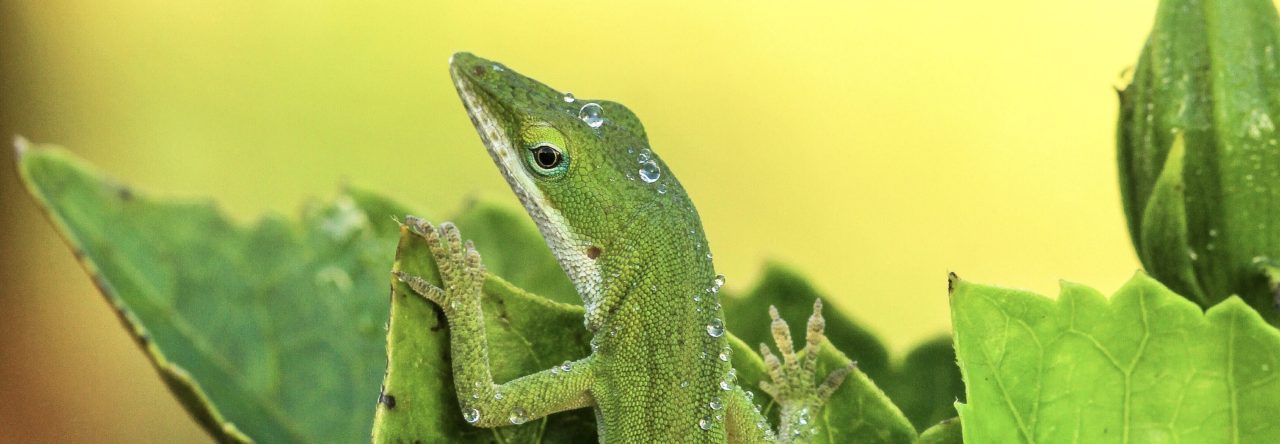
You lookin’ at me? Photo credit to Tim Norriss
It’s often said that winning isn’t everything. This may be true for humans and the games we play, but, unfortunately, for most animals losing a contest can have serious implications for whether they survive or reproduce. The study of animal contests has been thoroughly studied in males, and we know that losing to a rival can mean you get less or no mating success. However, we know far less about the consequences of winning and losing if you are a female. Jess Magaña and Matt Lovern (from Oklahoma State University) asked what happens to females after they win or lose a contest, and they had one of my favorite talk titles ever: “Small and large lizards agree in defeat but react differently to victory.”
They studied brown anole females, which are known to show aggression toward each other. Winners and losers were pre-determined by residency in a cage. Females who got to compete in their home cage were winners, and those who were placed into another lizard’s cage were the losers. They were allowed to interact, and then Magaña monitored their reproduction thereafter. Previous work had shown that losers laid eggs that hatched more quickly, suggesting that offspring were given less yolk and would perhaps be less successful because of it.
Comparisons between winners and losers reveleaed surprisingly little difference in most reproductive traits, such as egg size, time to hatch, and sex ratio. However, when they looked at the effects of body size on reproductive traits, there was a marked difference between winners and losers. In losers, investment in reproduction was unrelated to body size. In winners, though, size was related, and size reflects age in this species. Small (young) winners laid eggs that hatched quickly, but large (old) winners laid eggs that took longer to hatch. They interpreted this as different strategies of investing in potential future reproduction: old winners should invest in current offspring, whereas a young winners should invest in potential future offspring. This interesting finding highlights the fact that there is still much to be learned about the subtlety of how a mother’s environment and experiences can shape her offsprings’ life.
- Exercise and the Immune System in Green Anoles - January 6, 2021
- Exercise Can Kill You (If You’re an Anole)! - May 10, 2019
- Leptin Mediates Tradeoffs in Green Anoles - February 2, 2019


Leave a Reply